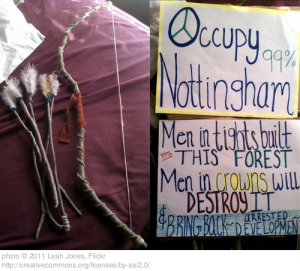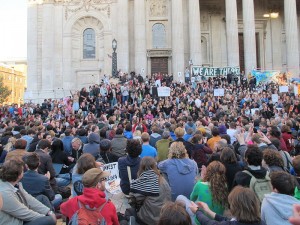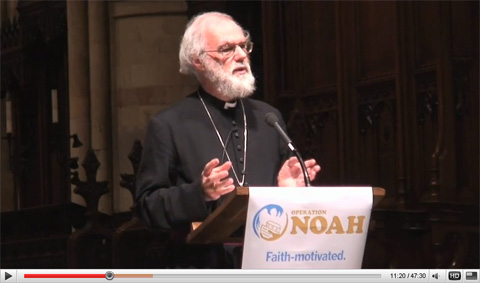rowan williams
Since arriving to the White House, the richest man in the world, Elon Musk, has been on a destructive whirlwind through the federal government. At the behest of President Trump, the South African billionaire and chief of the Department of Government Efficiency has led an effort to illegally gut numerous federal agencies, fire tens of thousands of federal workers, and perpetrate fraud while claiming to root it out.
Regarding the seemingly intentional turmoil of Musk’s actions, Trump bragged at the Conservative Political Action Conference that his administration had “effectively ended the left-wing scam known as USAID. The agency’s name has been removed from its former building, and that space will now house agents from Customs and Border Patrol.” Taken alone, these actions have the makings of an oligarchic heist or a coup that cripples the government’s capacity to provide and protect public goods.
But within a wider aperture of the administration’s priorities — ripping apart families, hoping to establish concentration camps, offering refugee status to white Afrikaners, attacking trans people, and engaging in a “war on woke” across institutions — a coherence comes into focus amid the chaos. These are men who destroy to build a racial hierarchy in service of their own wealth and profit. Or as political commentator Elie Mystal of The Nation has framed it, they are bringing a “a neo-apartheid economic agenda to the US government.”
The Right Rev. Justin Welby, bishop of Durham in the U.K., has been named the new Archbishop of Canterbury, succeeding the retiring Archbishop Rowan Williams as head of the Anglican Communion.
LONDON — Archbishop of Canterbury Rowan Williams criticized some Christians for feeling so "embarrassed and ashamed and disgusted" over homosexuality that they seem unwelcoming to outsiders and convey a lack of understanding.
Addressing a group of Christian teenagers at his Lambeth Palace residence in London, the spiritual leader of the Anglican Communion said Anglicans and other Christians are still in "quite a lot of tangles" about homosexuality. The confusion sometimes leaves the church "scratching its head and trying to work out," Williams said.
His comments came barely two weeks after he slammed the British government for its plans to legalize same-sex marriages — something that Williams said would be a mistake. The Anglican Communion itself has been deeply divided over homosexuality. The Episcopal Church, the communion's U.S. branch, allows gay bishops and sanctions same-sex commitment ceremonies, while more conservative leaders in Africa strongly denounce homosexuality.
The Observer newspaper in the UK published extracts from Archbishop of Canterbury, Rowan Williams' new book:
Archbishop of Canterbury Rowan Williams, the leader of the Church of England and the worldwide Anglican Communion, recently announced that he would step down by year's end. A few days later, the Church of England rejected a Williams-backed unity plan for global Anglicanism, a church fractured by issues of gender and sexual identity. The timing of the resignation and the defeat are probably not coincidental. These events signal Anglicans' institutional failure.
But why should anyone, other than Anglicans and their Episcopal cousins in the U.S., care? The Anglican fight over gay clergy is usually framed as a left and right conflict, part of the larger saga of political division. But this narrative obscures a more significant tension in Western societies: the increasing gap between spirituality and religion, and the failure of traditional religious institutions to learn from the divide.
"What do think will happen" a longtime Episcopalian asked me in Charlotte, N.C., "now that Archbishop ... er ... "
"Rowan Williams," I said.
" ... yes, Rowan Williams, has decided to retire?"
The question took me aback. I rarely hear Episcopalians talking about the Archbishop of Canterbury, the London-based head of the worldwide Anglican Communion, which includes the Episcopal Church as its U.S. branch.
Many Episcopalians pray for the 61-year-old prelate every Sunday, but as Canterbury has gotten more conservative and more solicitous of arch-conservative Anglican bishops from the Third World, Anglicans in developed nations choose to walk their own progressive path.
LONDON — Archbishop of Canterbury Rowan Williams said Friday he will step down at the end of 2012, setting the stage for the unique process of government officials appointing the new leader of the worldwide Anglican Communion.

Williams' surprise announcement stunned the religious world, even as the short list of prospective successors swiftly began to circulate. Williams, 61, has led the Church of England and the world's 77 million Anglicans since 2002.
Traditionally, the new leader is chosen by a church committee of Anglican clergy and laity, who then draft a short list of candidates to submit to the prime minister, currently David Cameron.
While Queen Elizabeth II is the supreme governor of the Church of England and formally appoints the archbishop of Canterbury, the decision is based on the final determination of the prime minister. That process could be dogged by controversy. In the recent past, some Church of England reformists have cast doubt on whether a political figure should be involved in picking a spiritual leader for 77 million Anglicans around the world.
The odds-on favorite, according to numerous observers, is Uganda-born John Sentamu, the current archbishop of York and the No. 2 official in the Church of England. Sentamu, the sixth of 13 children, fled his homeland and its dictator, Idi Amin, in 1974.
Upon learning that Rowan Williams, the Archbishop of Canterbury, has announced his intention to resign at the end of the year, former British Prime Minister Tony Blair and the UK's Chief Rabbi Lord Sacks issued a statements celebrating Williams for his years of leadership and service.
Rowan Williams, Archbishop of Canterbury, announced this morning that he is resigning at the end of the year. After more than 20 years as bishop and then archbishop, Williams plans to return to academia at Cambridge University.
VATICAN CITY — Despite differences over women's ordination and a controversial Vatican initiative to woo back disgruntled Anglicans, Pope Benedict XVI and Archbishop of Canterbury Rowan Williams will pray together in Rome on Saturday (March 10).
The heads of the Roman Catholic Church and the worldwide Anglican Communion will celebrate vespers to mark the 1,000th anniversary of the Camaldoli monastery in Italy, which is revered by both Catholics and Anglicans.
Benedict and Williams are scheduled to have a private meeting on Saturday morning.
Rowan Williams Says Jesus Would Be Siding With Occupy Movement; Too Much Focus On Money Destroys The Environment, Says Cardinal; Presidential Politics And Religion (VIDEO); Bring Them Home—Now; The Ad War Heats Up: How Religion Is Playing In Iowa; Obama To Durban: ‘We Must Not Give Up’; Occupy San Francisco Encampment Cleared By Police In Overnight Raid.

With the opening of the G20 Summit in Cannes, France today, an idea that's been around for awhile is in the news again and gaining more attention as a result of the #OWS movement: The so-called "Robin Hood tax," a minimal tax on all financial transactions with the resulting revenue dedicated to anti-poverty programs....Archbishop of Canterbury Rowan Williams, in his response to the occupation of St. Paul's Cathedral in London, endorsed the Vatican proposals. Williams observed that "people are frustrated beyond measure at what they see as the disastrous effects of global capitalism," and urged a full debate on "a Financial Transaction Tax

On Sunday (10/30), the Anglican Bishop of London, the Rt. Rev. Dr. Richard Chartres, met with Occupy London protesters who have encamped for several weeks now on the ground of St. Paul's Cathedral in London, in an ongoing attempt to get the demonstrators to leave church grounds.
Chartres wants the Occupiers to vacate cathedral property and stopped short, in an interview with the BBC yesterday, of saying he would oppose their forcible removal. Other British clergy, however, are rallying behind the demonstrators, saying they would physically (and spiritually) surround protesters at St. Paul's with a circle of prayer or "circle of protection."
In recent days I've been thinking through with a friend one of the enduring challenges of pastoral and catechetical ministry: how to dispel the notion that worship should be entertaining. It's not as hard as it used to be -- there are books (and blogs) on the subject; it gets preached on fairly often these days. But it's not as easy as it ought to be. It seems we are a species ever in need of amusement.
One of the most compelling arguments against the persistent idea that worship ought to entertain, dazzle, distract, or otherwise charm us is found in James Alison's insight that true worship is "orchestrated detox."
[Read more of this blog conversation in response to the Sojourners magazine article "Is the 'Emerging Church' for Whites Only?"]
The best lack all conviction, while the worst
Are full of passionate intensity.
--William Butler Yeats, from "The Second Coming"








